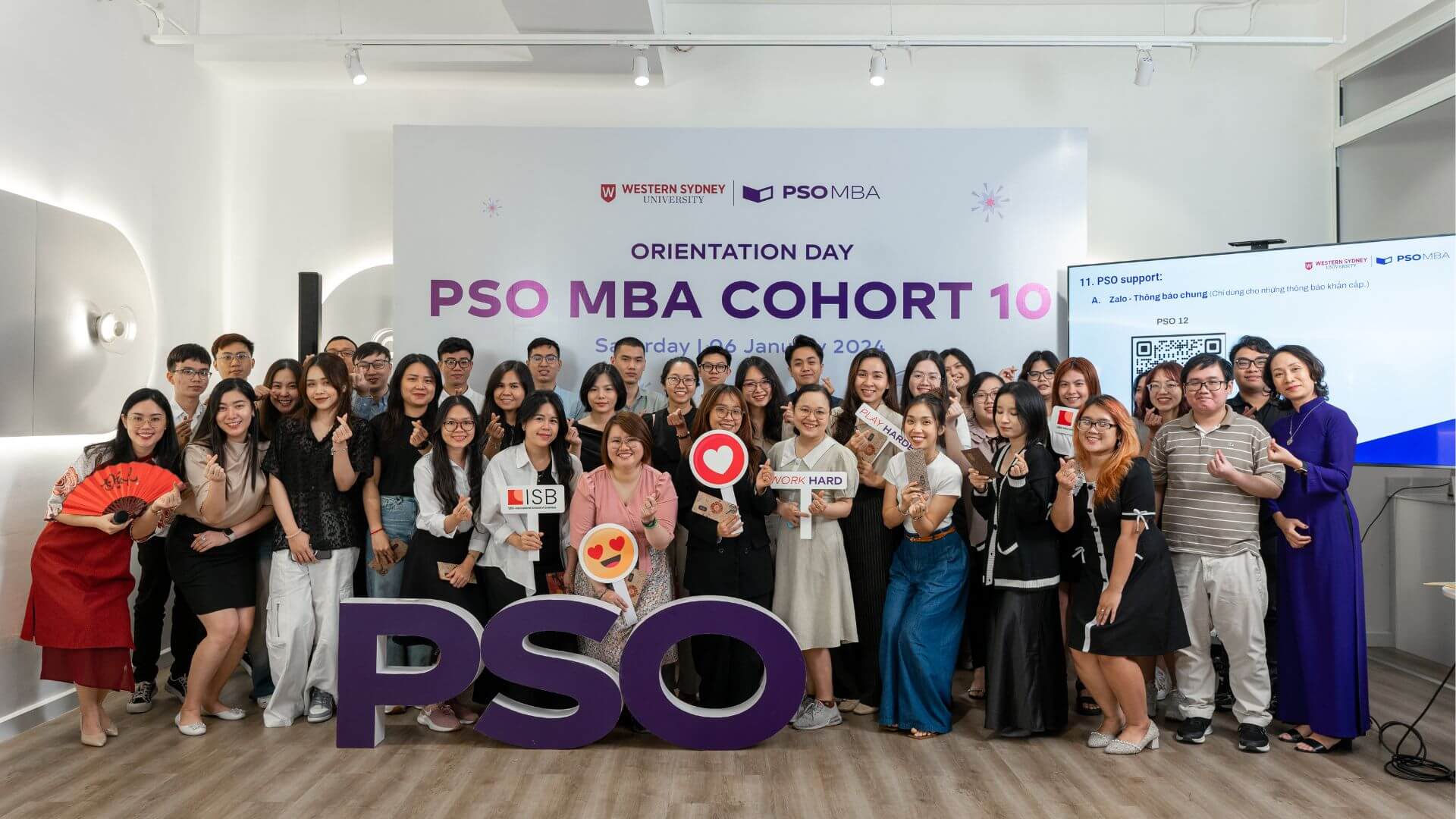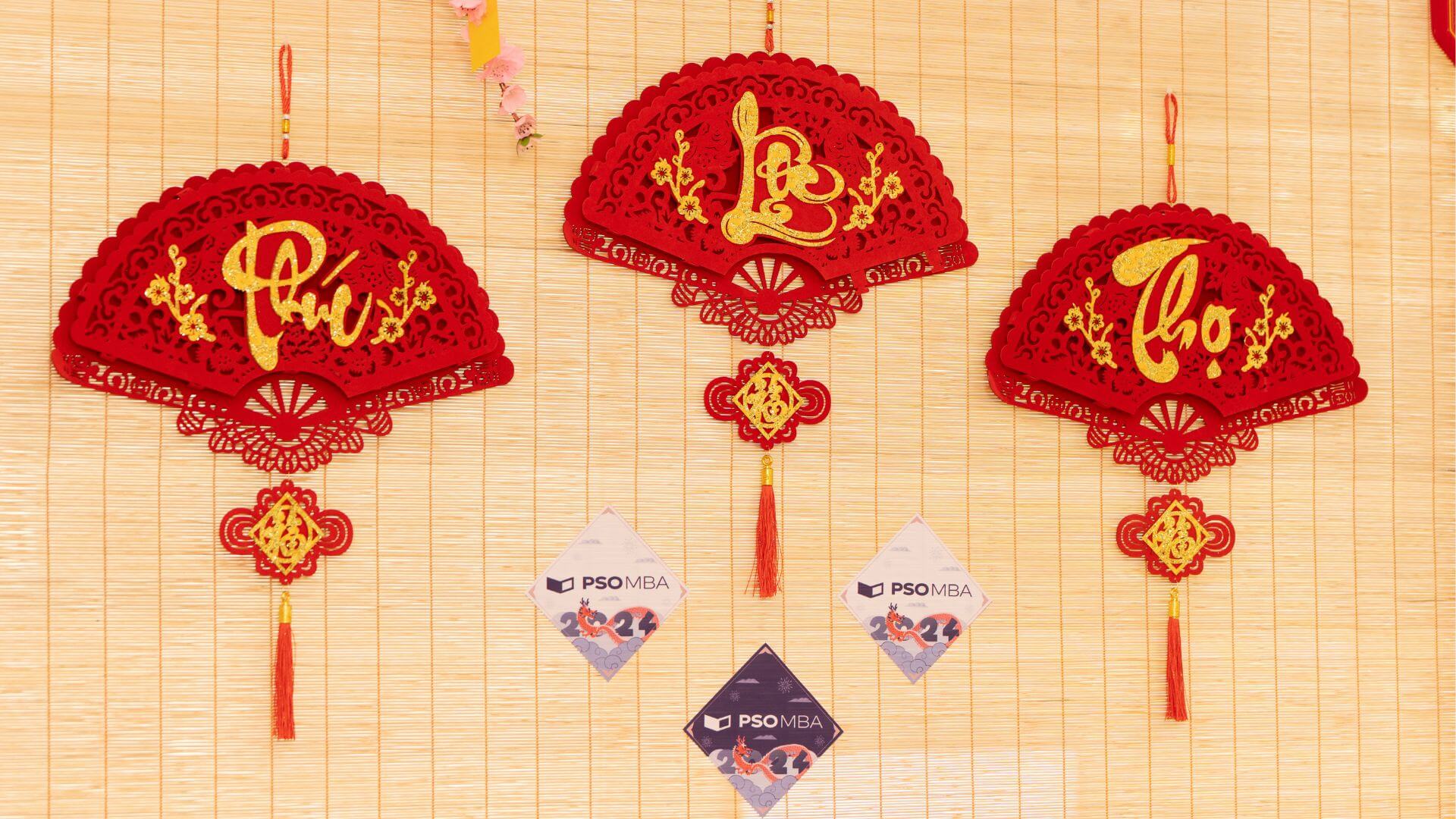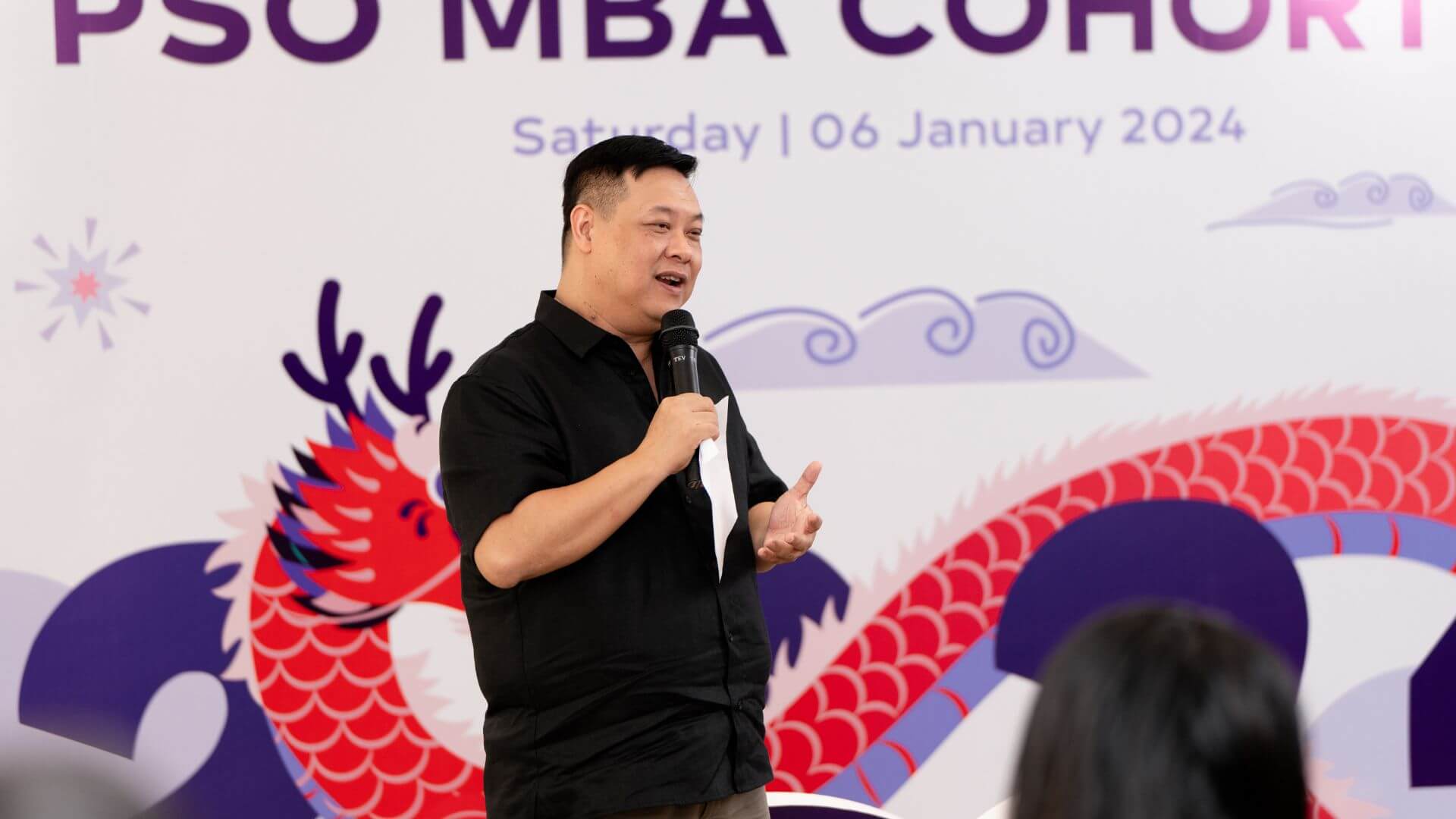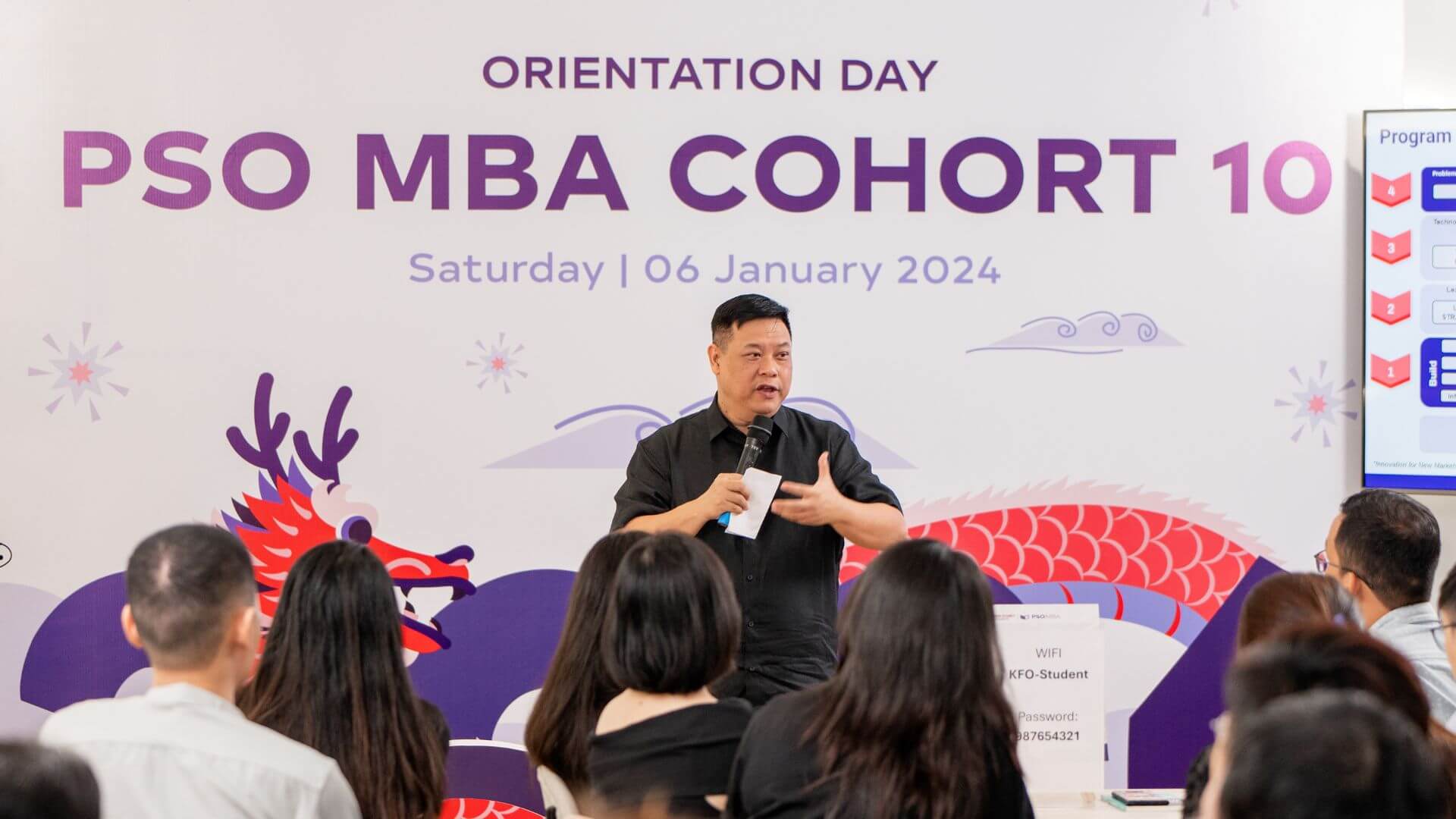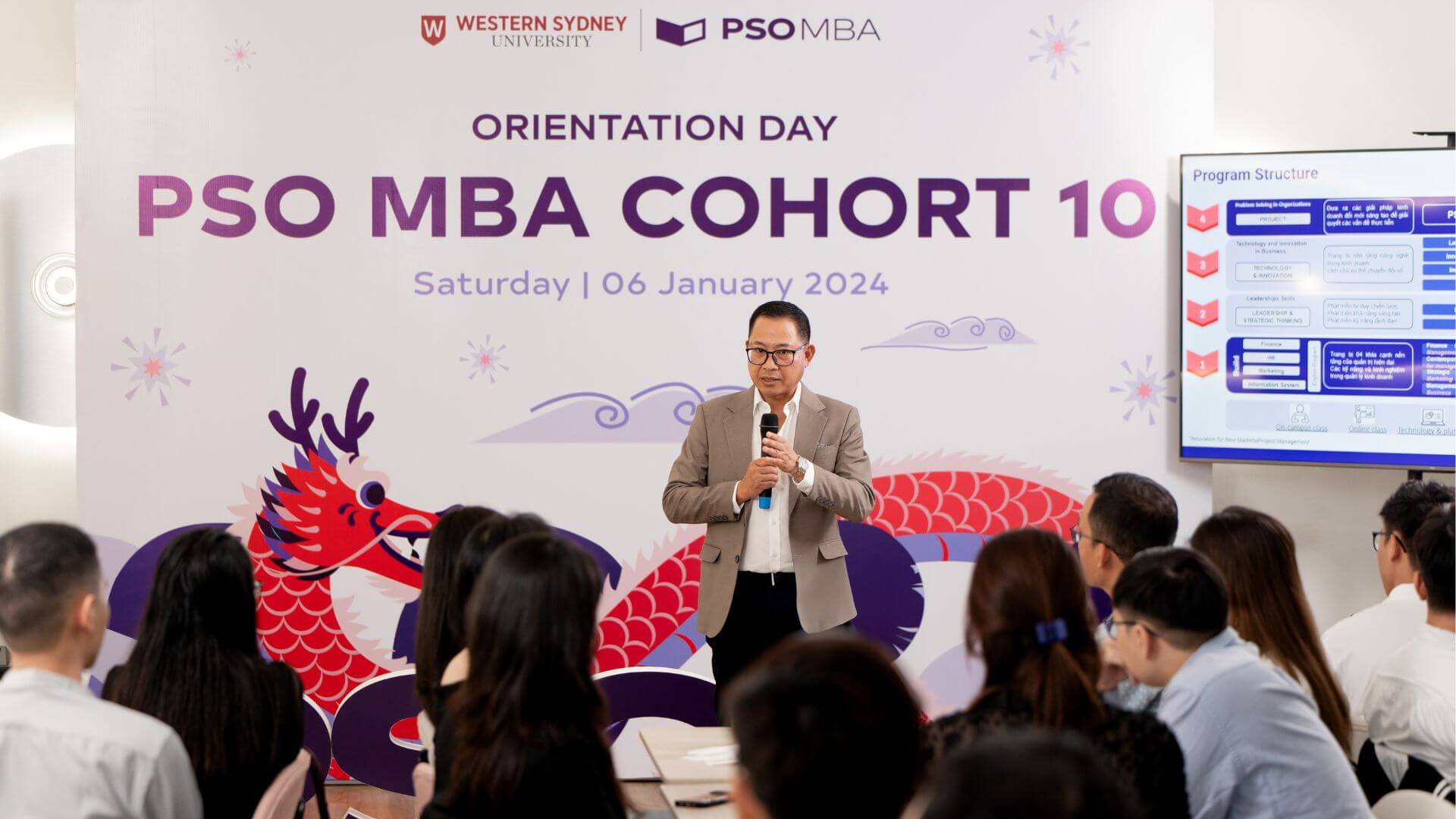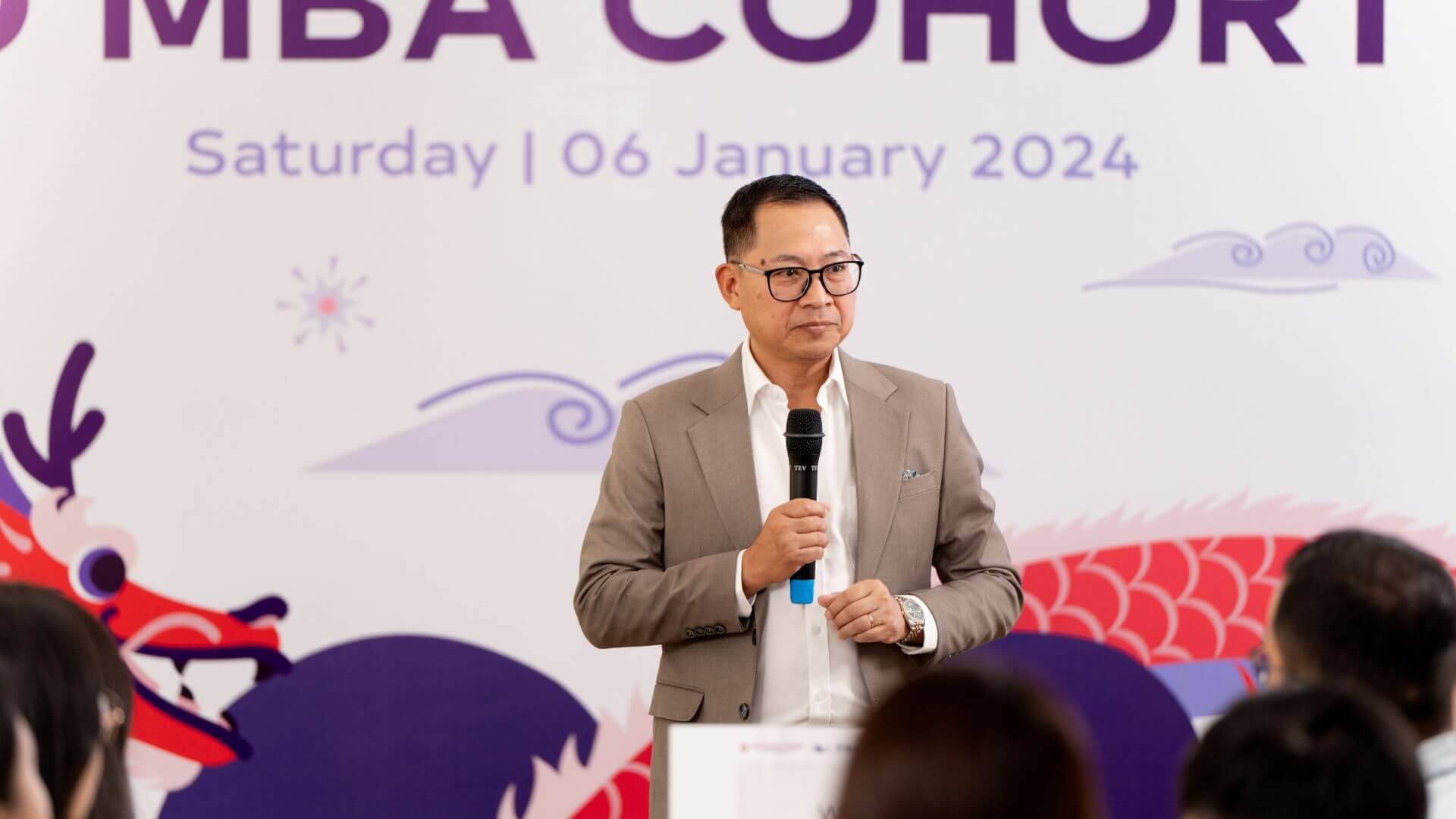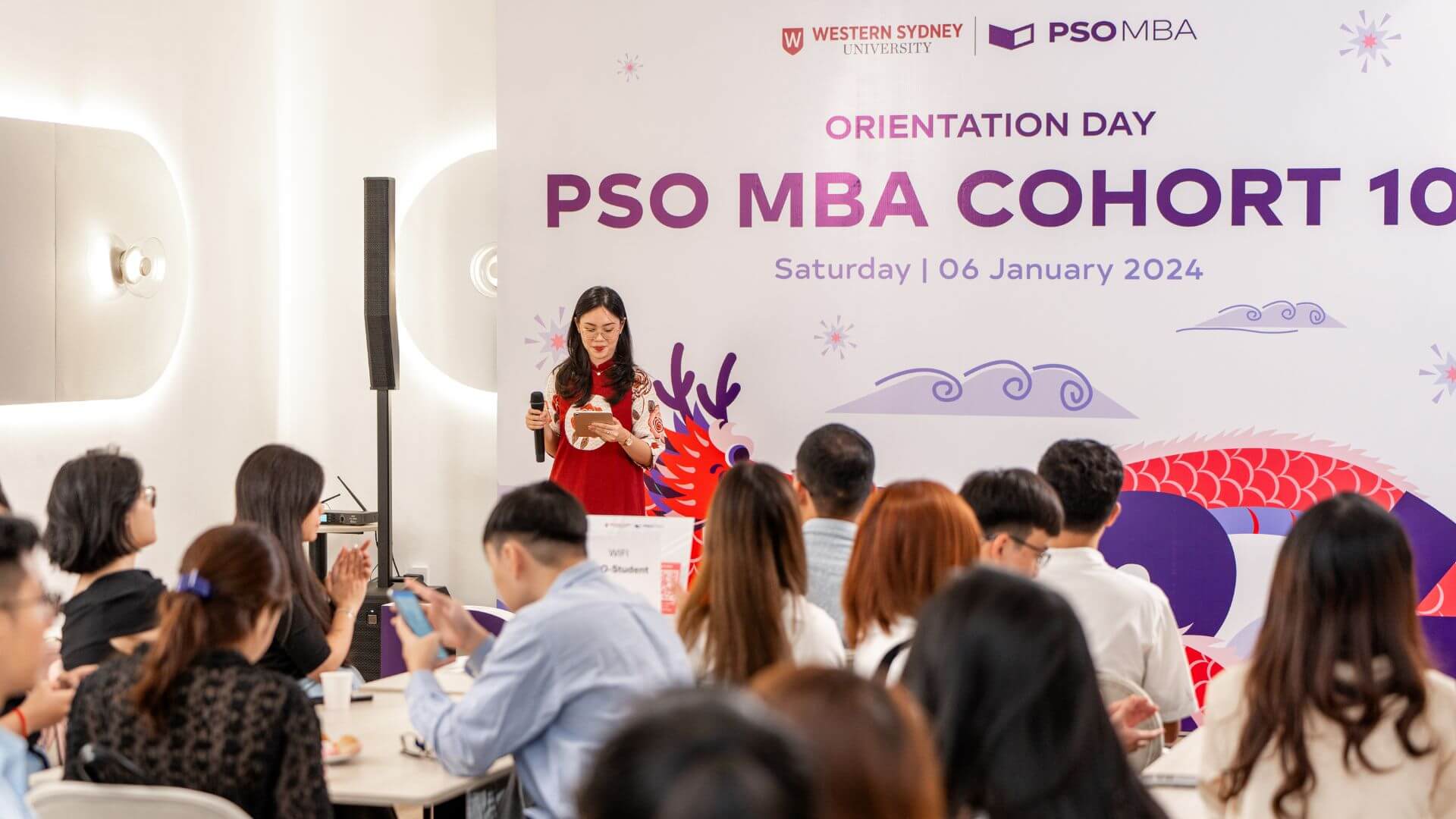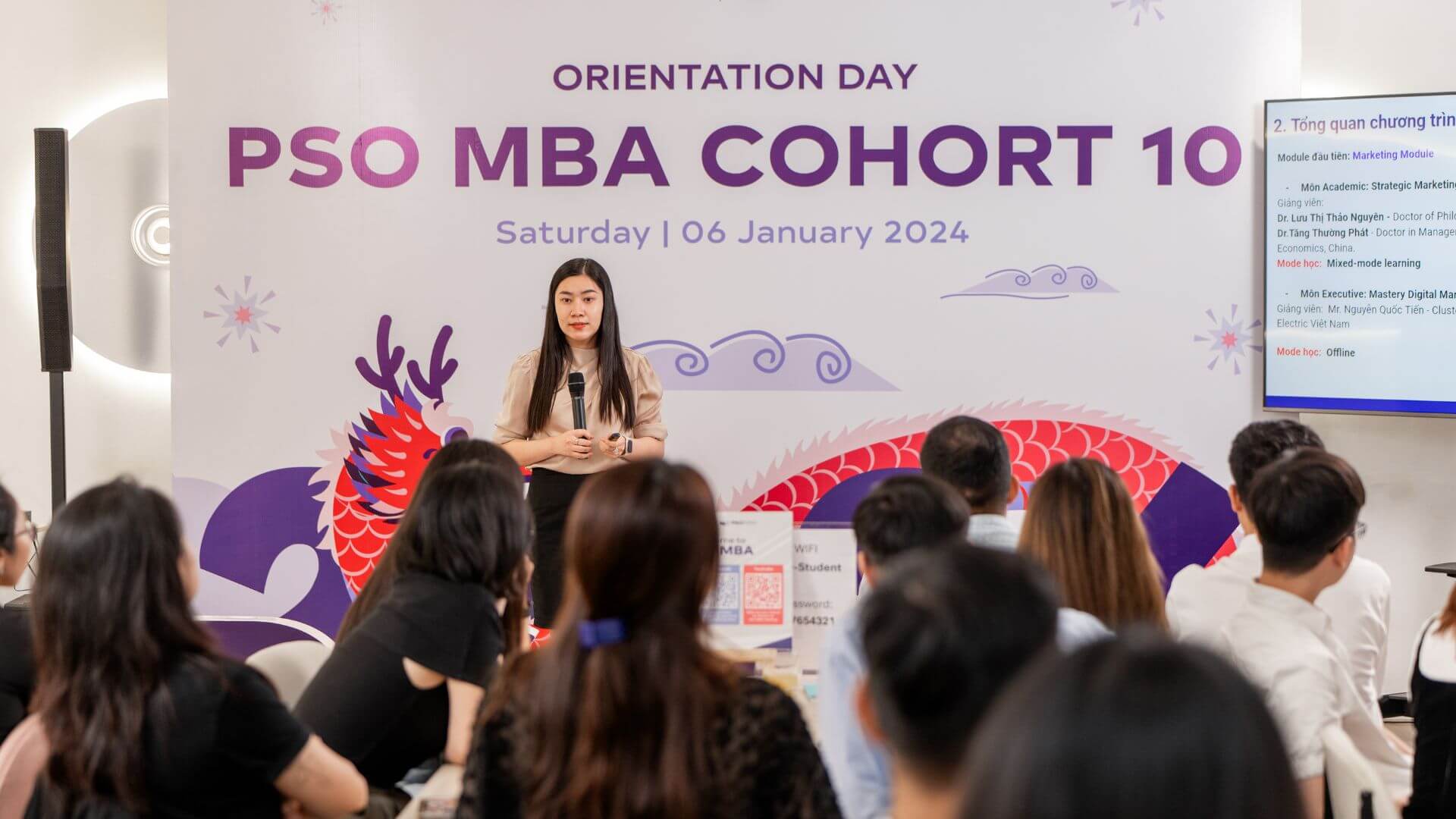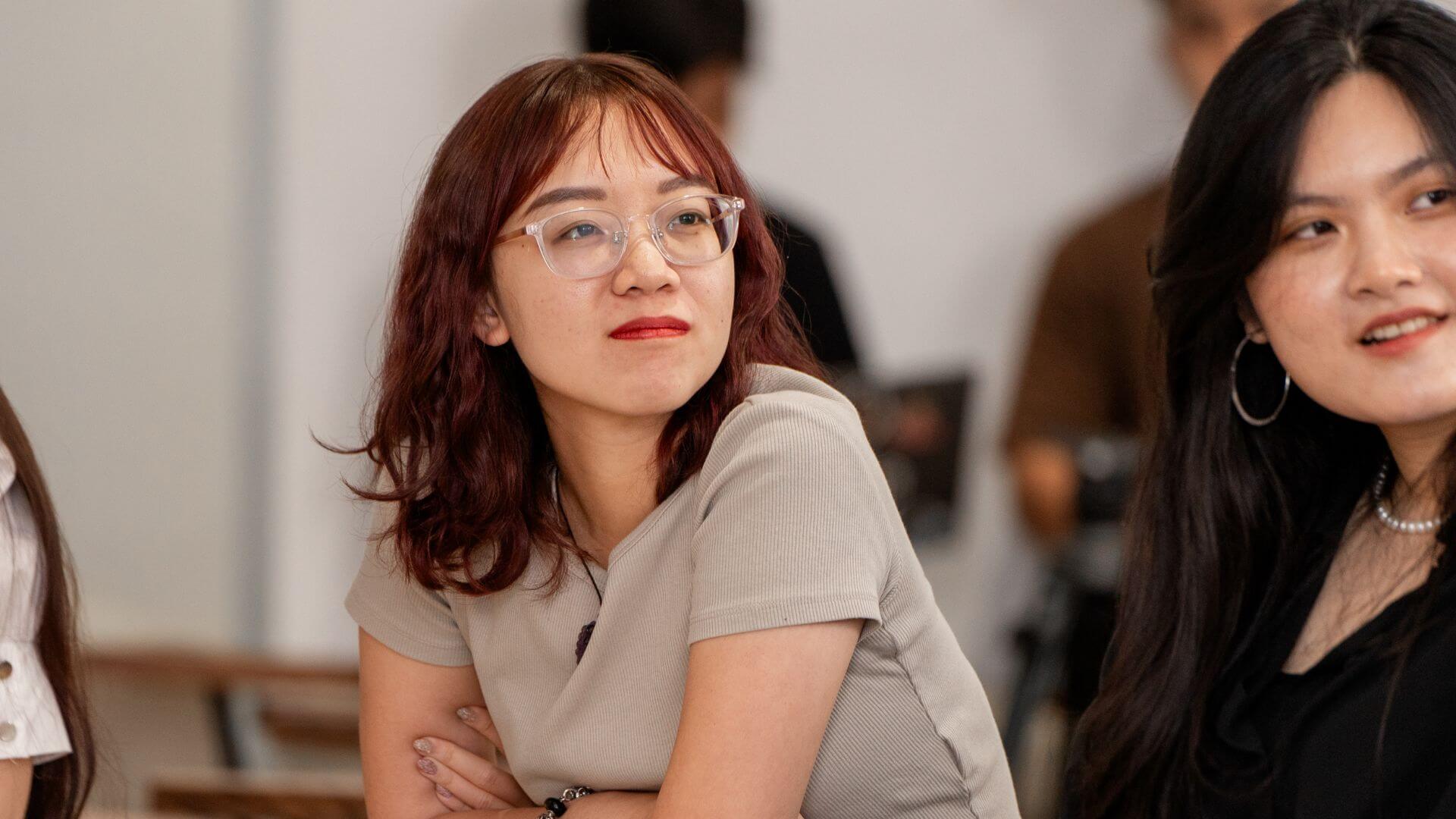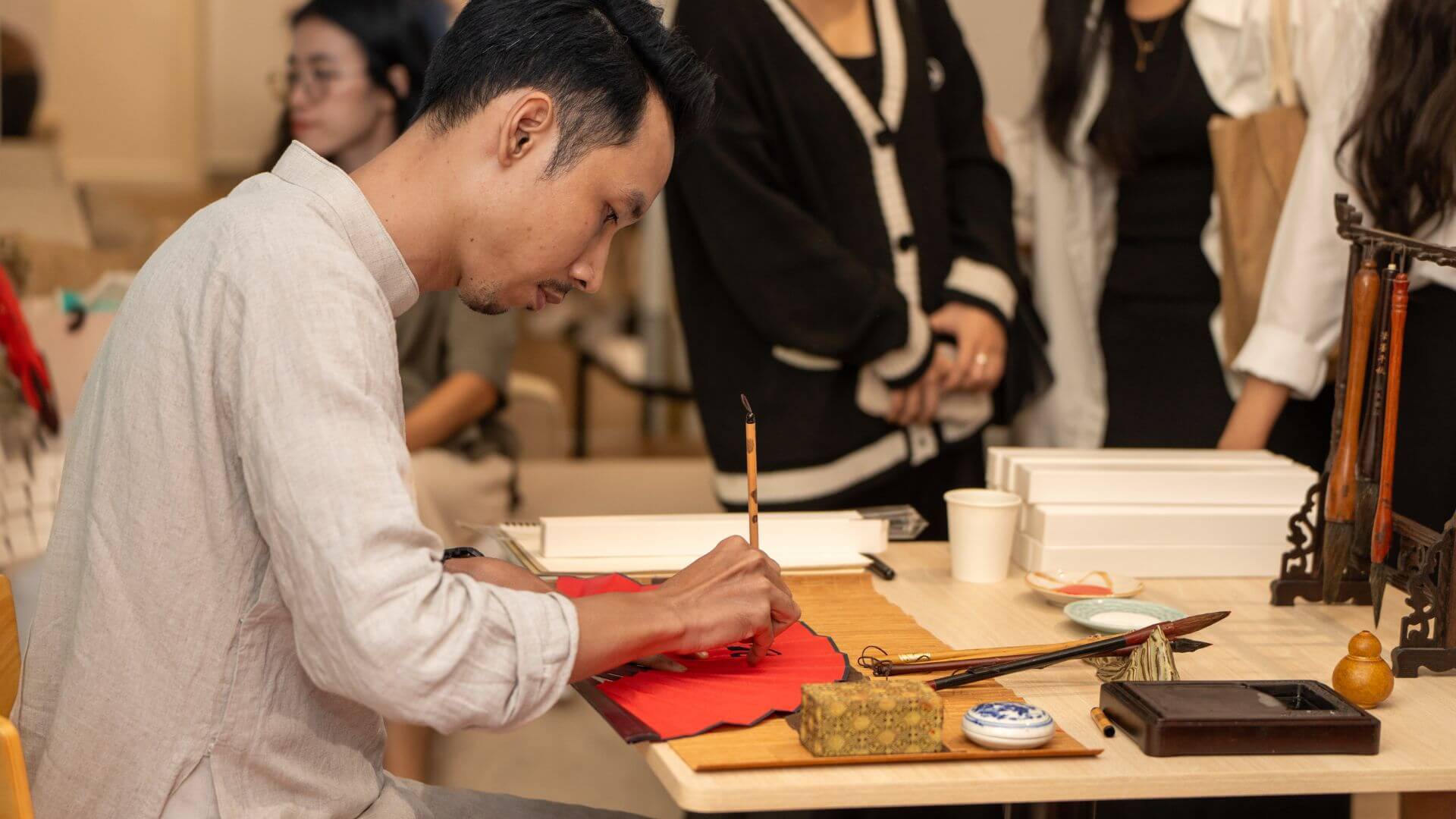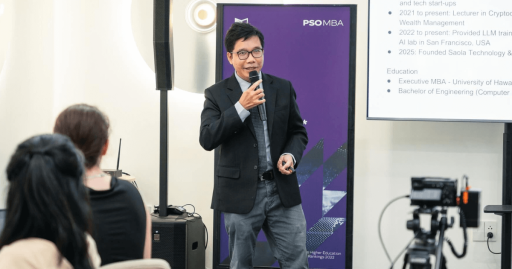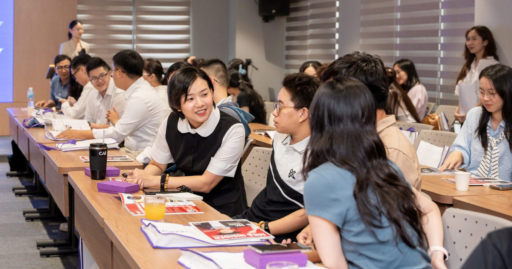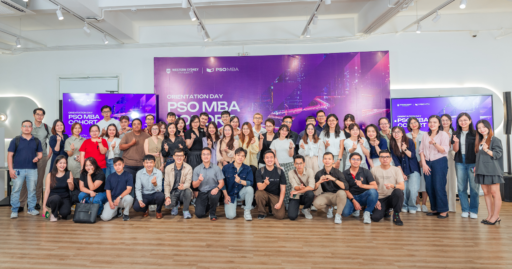Orientation Day 2024 – PSO MBA Cohort 10 on January 2024
On January 6th, 2024, the Orientation Day event for the PSO MBA Cohort 10 – January 2024 took place at 2A Nguyen Thi Dieu, Ho Chi Minh City, creating a space for close interaction between the institution and the new batch of students.
The event was graced by the presence of Assoc. Prof Tran Ha Minh Quan – Director of ISB, Ms. Le Lan – Project Director of PSO, Dr. Tang Thuong Phat – Academic Director of the PSO project, and a special guest – Dr. Ly Qui Trung – Dean of LQT Institute.
Appearing as an successful entrepreneur who achieved an MBA, Dr. Ly Qui Trung shared insights into his valuable learning journey. According to him, the MBA was instrumental in his professional success. Here are some key points from his sharing:
-
Mục lục
The serendipitous journey into pursuing an MBA
After completing the Bachelor’s program at Western Sydney University in Australia, Dr. Trung found himself at a crossroads between staying abroad and returning to Vietnam to further his career. However, he chose to stay and pursue an MBA. “This decision is one of the most insightful for me for two reasons,” he said. Firstly, continuing the educational trajectory at a pivotal moment proved greatly advantageous. Secondly, the MBA credentials and the confidence derived from MBA knowledge helped him return to Vietnam and assume crucial leadership roles.
During interviews for significant positions, although he impressed the HR department with an image of a dynamic, passionate, and creative young individual, his prior experience at that time was still insufficient. However, the MBA showcased to potential employers that he was a young individual continuously learning and was eager to self-develop. This attribute led him to successfully hold a leadership position at the age of 29.
-
The lifelong utility of MBA knowledge
According to Dr. Ly Qui Trung, an MBA offers numerous benefits in one’s career. Firstly, though not solely significant, the MBA degree enhances individuals’ stature in the eyes of partner companies, leadership boards, or executive councils. In a choice between someone lacking experience and a degree versus someone with low-level management experience but armed with MBA knowledge, the latter is considered.
Secondly, financially, an individual with an MBA will likely command a higher salary compared to a bachelor’s degree holder. Additionally, there will be more opportunities for career advancement. Therefore, investing 1.5 – 2 years in an MBA program is deemed a profitable investment in various aspects of one’s career.
Dr. Ly Qui Trung stresses the immense benefits derived from an MBA program. Consequently, students need to commit their time, intellect, and effort to the MBA journey in the upcoming years.
-
Allocating time between MBA studies and work
Regarding work-life balance, Dr. Trung believes that life isn’t just about studying and working; it also involves leisure activities. He emphasizes that personal happiness should stem from within oneself, which in turn spreads joy to those around, such as family, friends, colleagues, and leaders. Engaging in sports, music, painting, writing, teaching, sharing, or participating in non-profit projects are activities Dr. Trung thoroughly enjoys.
His secret to balance is dedicating 100% focus to everything. His advice to students is to prioritize at each stage and concentrate wholeheartedly. For instance, while he prioritizes work-related activities like meetings and client interactions during the day, from 6 pm onwards, he prioritizes family time. In summary, achieving life balance requires practicing prioritization and giving 100% effort in whatever one does.
Find out more: Dr. Trung Ly: “Bachelor is like riding a bicycle, MBA is like a motorbike”
-
Introduction to the PSO MBA program
Following Dr. Ly Qui Trung’s insights, Assoc. Prof Tran Ha Minh Quan – Dean of ISB, shared further details about the academic program. He outlined the stages of the program, stating that Phase 1 focuses on building a contemporary management foundation for students through two parts: (1) MBA Academic – Theory and (2) MBA Executive – Practice. While the MBA Academic is taught by professors from universities in Australia and the USA, the MBA Executive is delivered by current experts holding high positions in corporations, aiding students in honing practical skills. These theoretical and practical aspects are intertwined to enable students to apply learned knowledge in real-life scenarios.
Furthermore, strategic vision plays a crucial role in business operations, according to Assoc. Prof Quan. He mentioned that even though companies face similar issues, their resource allocation strategies differ. Phase 2 – Strategic management skills encompass subjects like Integrated Business Experience and Economics for Business, designed to provide an overall view of the economy and business operations.
Moving on to Phase 3 – Innovation Management in Business, the program emphasizes providing technological skills to adapt to the era of big data. “In the future, all businesses will apply data-driven technology. Therefore, you need to develop more knowledge and skills related to technology, such as Data-driven in Digital Marketing, considering success factors through data analysis from marketing campaigns.”
Finally, students need to integrate all knowledge and skills in Phase 4 – Problem-solving skills within organizations. “You will understand the repercussions and risks of decisions made in business operations,” he emphasized. Phase 4 presents a valuable opportunity for students to transition knowledge acquired from their mentors into their own by applying this knowledge to tackle existing challenges in businesses.

